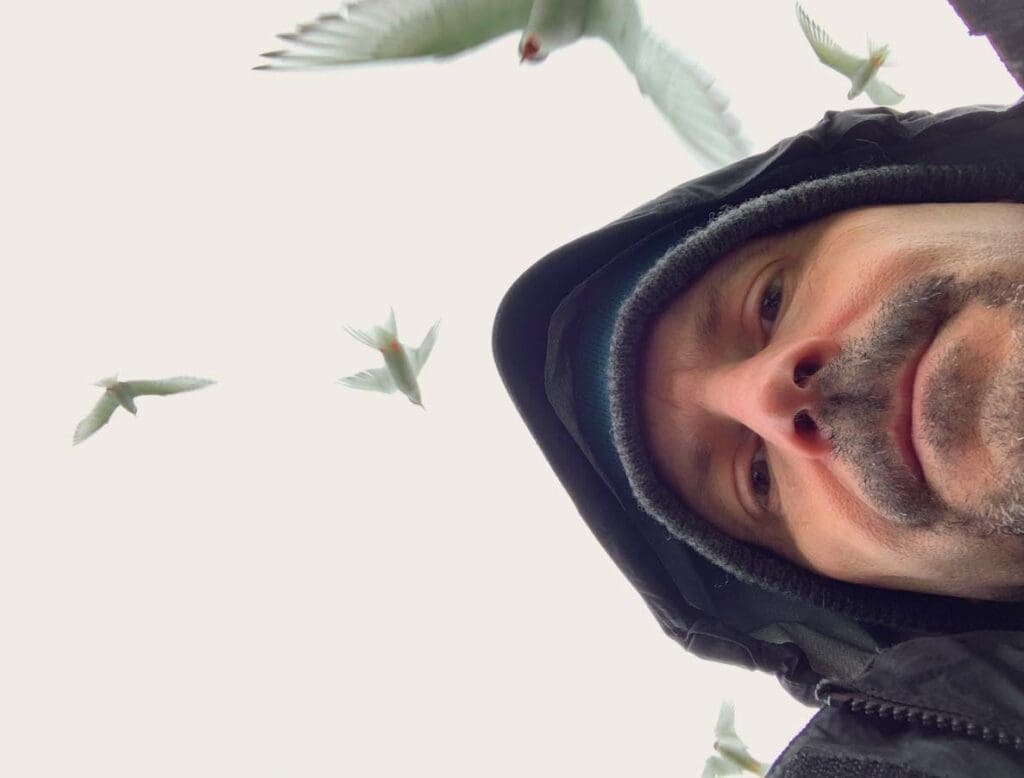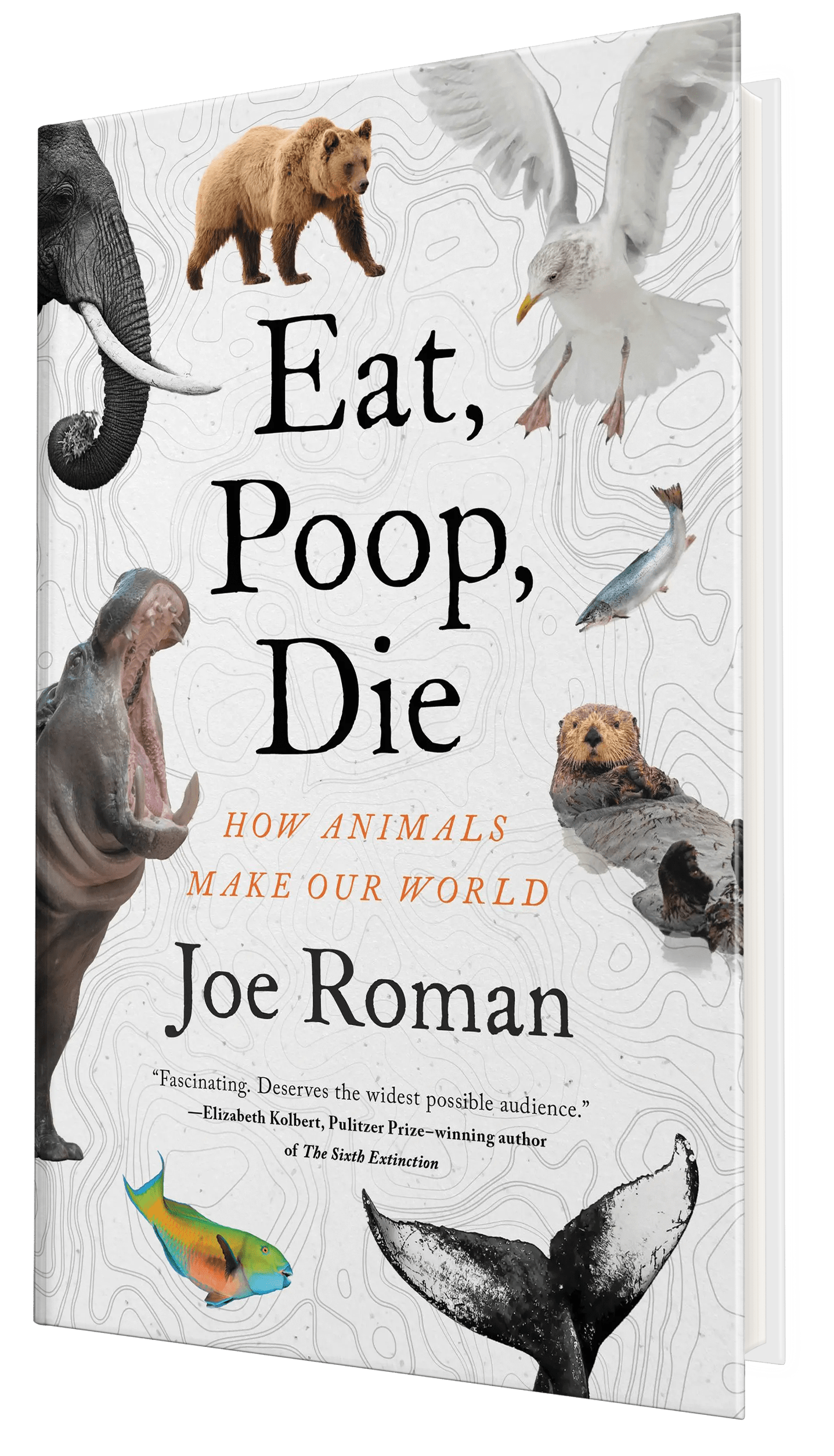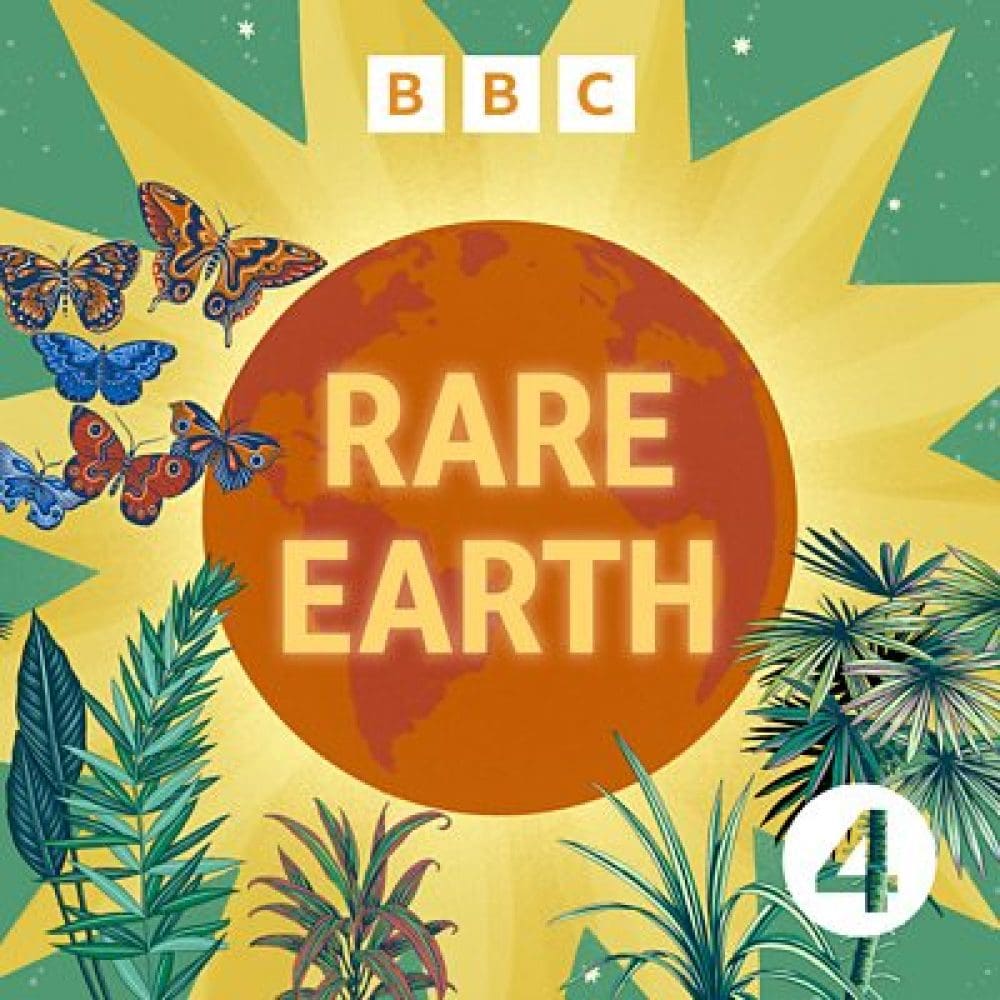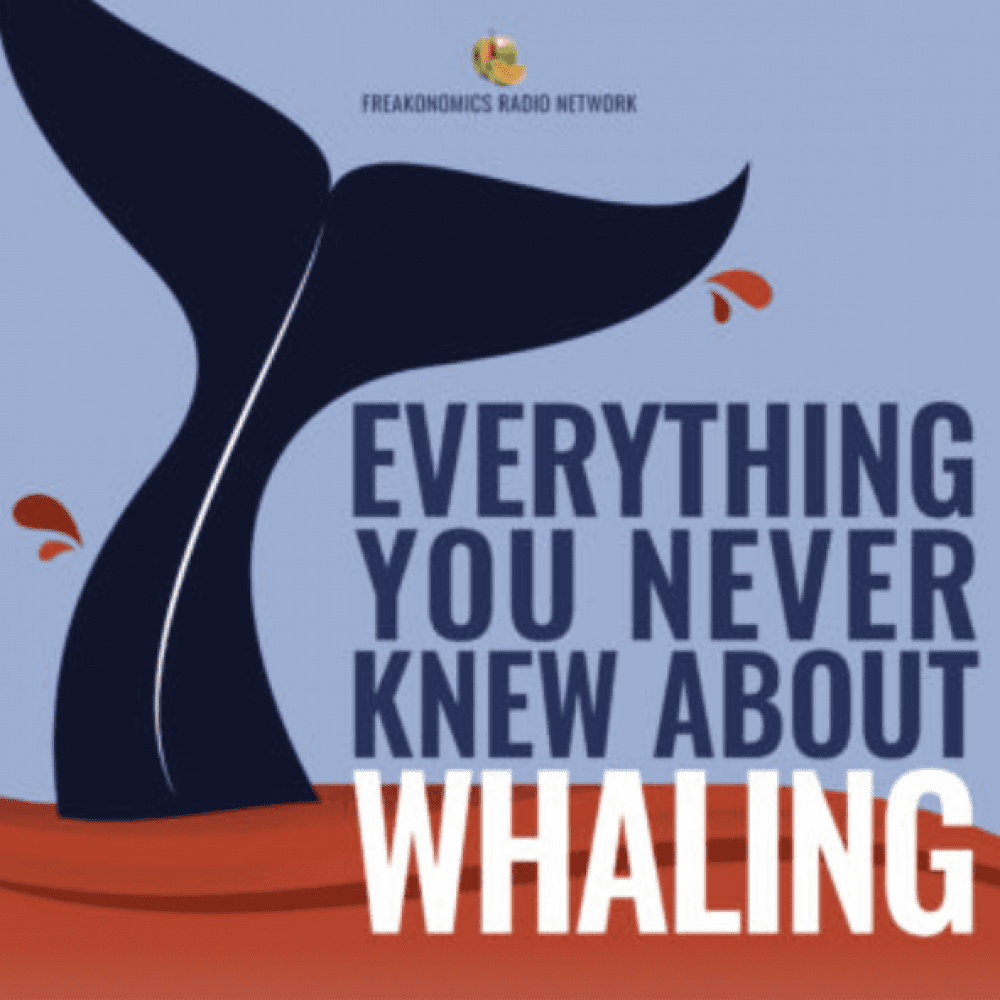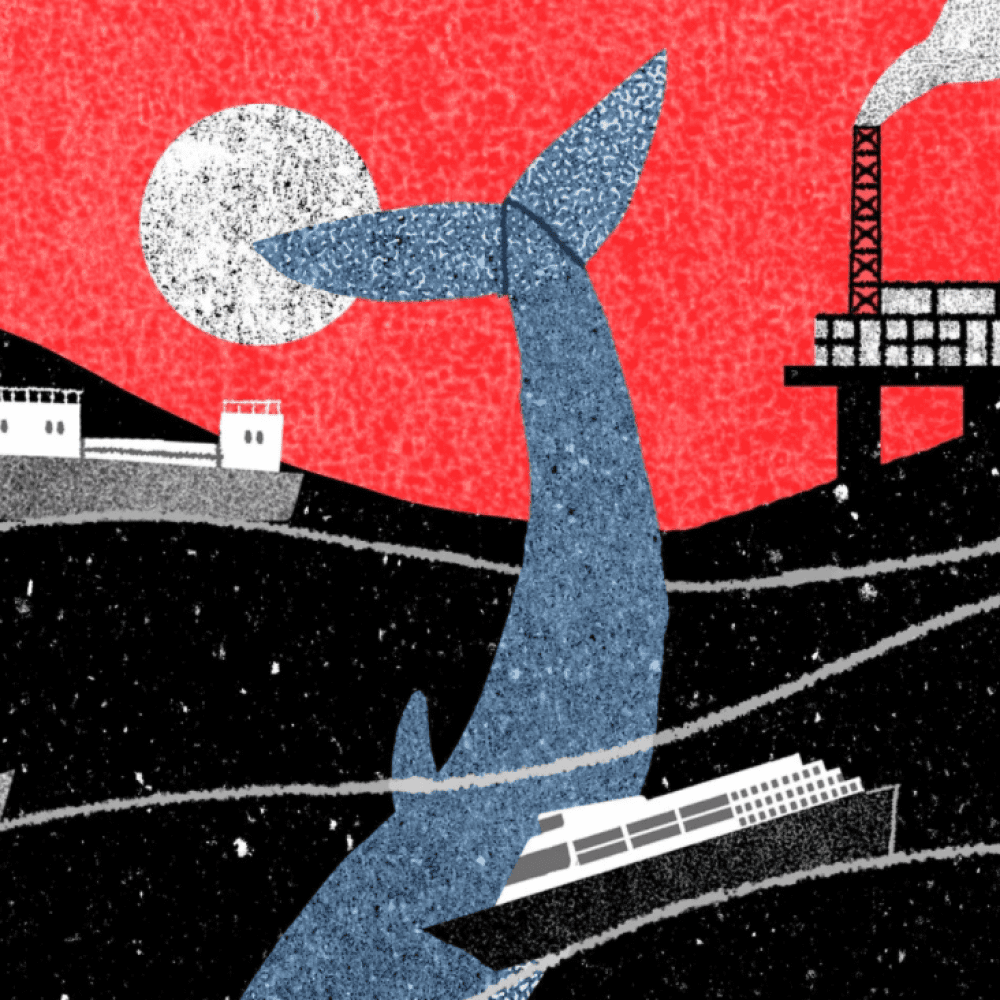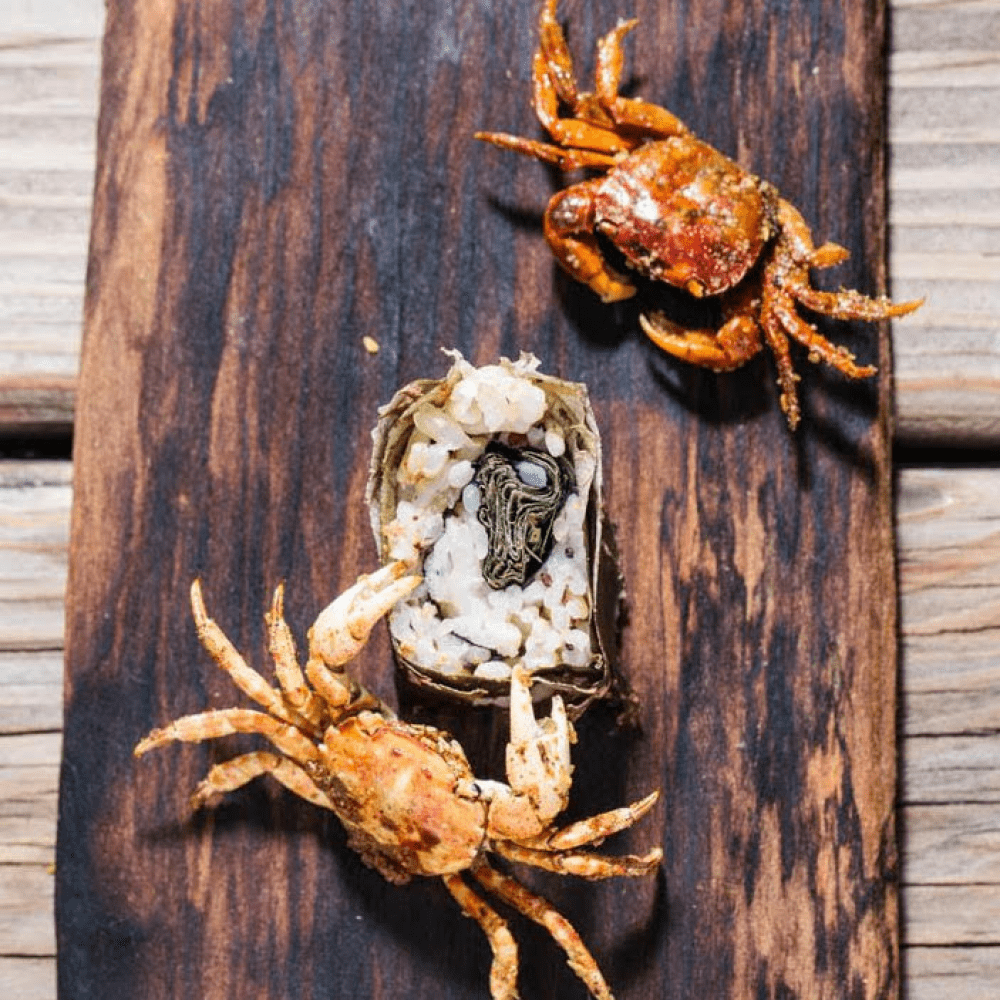EAT
POOP
DIE
If forests are the lungs of the planet, then animals migrating across oceans, streams, and mountains—eating, pooping, and dying along the way—are its heart and arteries, pumping nitrogen and phosphorus from deep-sea gorges up to mountain peaks, from the Arctic to the Caribbean. Without this conveyor belt of crucial, life-sustaining nutrients, the world would look very different.
The dynamics that shape our physical world—atmospheric chemistry, geothermal forces, plate tectonics, and erosion through wind and rain—have been explored for decades. But the effects on local ecosystems of less glamorous forces—rotting carcasses and deposited feces—as well as their impact on the global climate cycle, have been largely overlooked. The simple truth is that pooping and peeing are daily rituals for almost all animals, the ellipses of ecology that flow through life. We eat, we poop, and we die.
ABOUT JOE ROMAN
Joe Roman is a conservation biologist, marine ecologist, and editor ’n’ chef of eattheinvaders.org. Winner of the 2012 Rachel Carson Environment Book Award for Listed: Dispatches from America’s Endangered Species Act, Roman has written for the New York Times, Science, Audubon, New Scientist, Slate, and other publications. Like many of the animals he studies, Roman is a free-range biologist. He has worked at Harvard University, Duke University Marine Lab, University of Iceland, University of Havana, the U.S. Environmental Protection Agency, and the University of Vermont, where he is a fellow and writer in residence at the Gund Institute for Environment.
